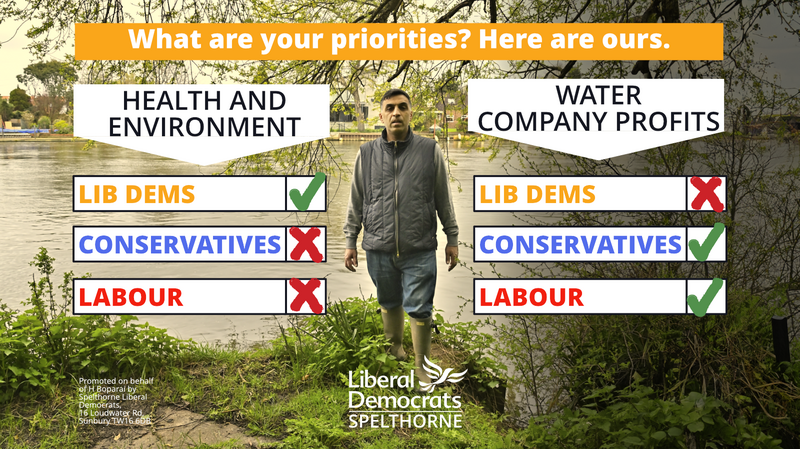Public health and the environment v water company profits. What do you want?

The government recently introduced a new rule for the water regulator, Ofwat. Now, the regulator has to care more about helping water companies make money and stay in business than stopping pollution from sewage.
The Liberal Democrats tried to stop this new rule by voting against it in parliament, but they didn't have enough support. Most MPs, including Labour, voted in favour of the rule.
The new rule says that if the regulator fines a water company for polluting, it might hurt the company's ability to grow. This means the regulator might go easy on fines to help companies make more money.
In the past, water companies have been told to lower customers' bills by a lot of money because they didn't stop sewage pollution. But now, with this new rule, the Liberal Democrats and other activists are worried the regulator might not punish companies as much for polluting.
Some water companies, like local provider Thames Water, are already struggling with money. This makes people worry even more about how they'll handle pollution problems.
Harry Boparai, Liberal Democrat Parliamentary Candidate for Spelthorne commented: “This is another example of this Conservative government having the wrong priorities. The privatised water companies have put profit before public health and the Tories, with Labour support, should not be seeking to bail them out. I support Ed Davey's call for a national environmental emergency to be declared, as clean water is a necessity of life."
Even Labour MPs voted for the new rule because they didn't want to seem like they were against businesses making money.
